66th "Warsaw Autumn"
Resounding Things
“Resounding Things” is the theme of the 66th Warsaw Autumn Festival, which brings together sound and musical installations, soundscapes and buildings filled with shapes and sounds. Classical instruments and ensembles shall be juxtaposed with new constructions, and composers and performers will treat all of the above as resounding objects. We will be presenting less narrative music and more swathes of sound with a rich inner life—to coexist with or walk in their surroundings. The extension of the sound palette and non-narrative forms of time flow might trigger a different perception of reality, less mediated by cultural impulses and conventions, free from some typical associations. Musical and extramusical ideas and meanings should not suffer; on the contrary, they might gain in credibility when expressed through means hitherto uncatalogued by the mind. Thus, the Festival is not fully “objective,” though we encourage you to capture even narratively dramatised works as texturally complex phenomena.
Non-concerts, installation concerts, objectophones, and performances
This year’s inauguration is not a concert but a metainstallation lasting several hours and including many stations: our audience will wander through them, choosing their own path. It will likely be impossible to hear and see everything, though some modules of this metainstallation will be repeated.
The Czapski Palace is another building filled with installations and sound objects created through the cooperation between students and teachers of the Academy of Fine Arts and Fryderyk Chopin University of Music.
A new Warsaw Autumn venue is the Sokolnicki Fort in the Stefan Żeromski Park, which will host sound objects and instrumental constructs, in the macro and micro scale, authored by Hans van Koolwijk and Paweł Romańczuk. Performances by both artists and Tomasz Szczepaniak will also take place there. Authors of installations and sound objects spread across many events will also include Simon Løffler with Animalia; Marko Ciciliani with the installation Why Frets? – Tombstone; Sky Macklay with the installation Harmonitrees; Krzysztof Cybulski with AAAA (augmented acoustic actuated autonomous) for three semiautonomous instruments; the ensemble of the Faculty of Mechatronics, Warsaw University of Technology, with Michał Górczyński playing the contrabass clarinet. Many objects will become objectophones, for example in works by Wojciech Błażejczyk, Eirik Brandal, and Marta Śniady.
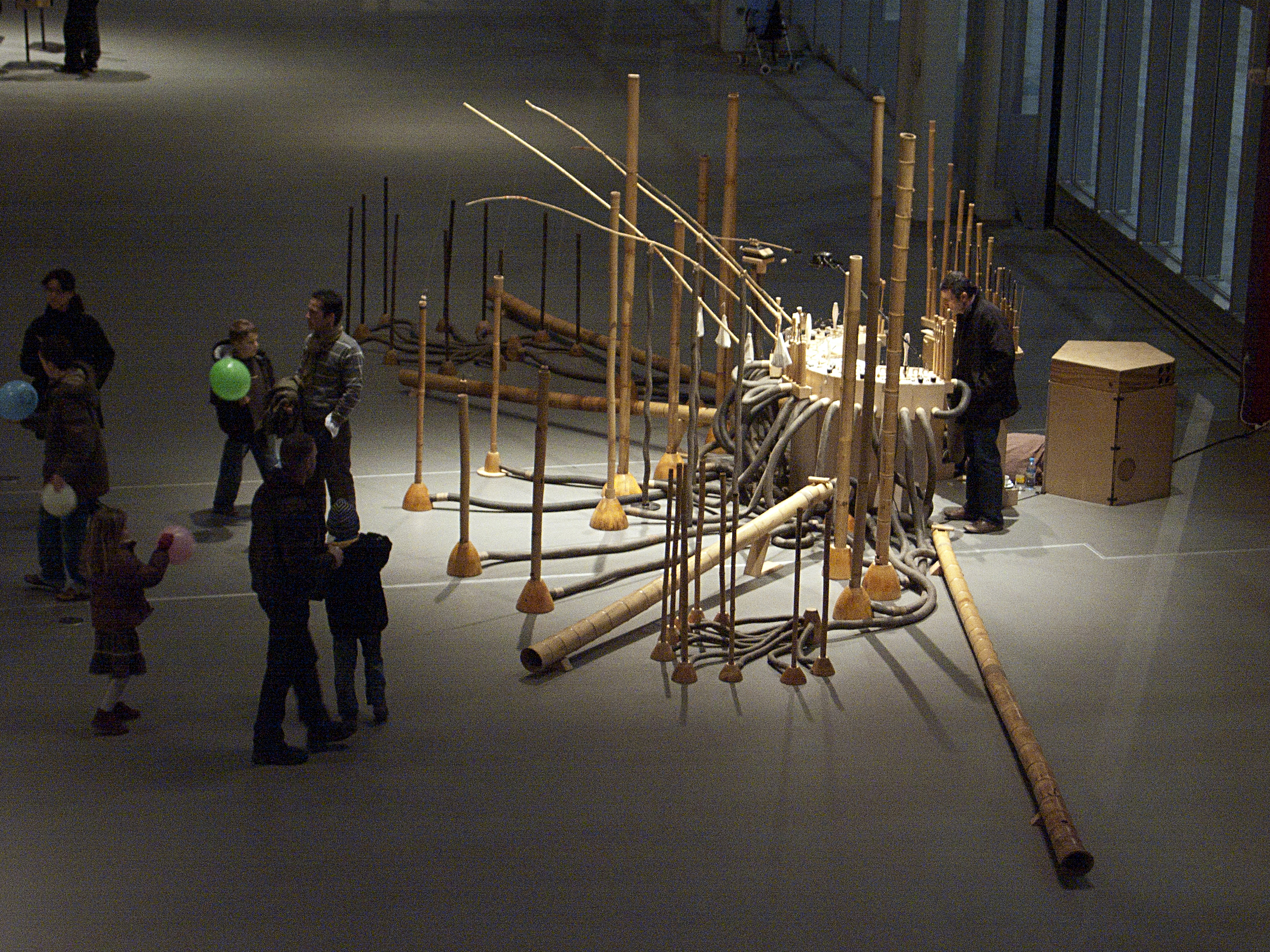
Hans van Koolwijk Bambuso sonoro
Protagonists
This year’s main protagonists extensively featured at the Festival shall include Bernhard Lang with two lengthy works: A Song for Rachela (commissioned jointly by the Adam Mickiewicz Institute and Warsaw Autumn for the 80th anniversary of the Warsaw Ghetto Uprising) performed by Klangforum Wien, and Radical Loops (also a joint commission of the Adam Mickiewicz Institute and Warsaw Autumn) performed by the Radical Polish Ansembl. We shall also feature Chaya Czernowin and her work Seltene Erde: alchimia communicationis (commissioned by Warsaw Autumn, Music Biennale Zagreb, the Croation Composers’ Union, and the Wien Modern festival), presented by Klangforum Wien; Fozié Majd (see below in the discussion of this year’s Warsaw Autumn Iranian programme); and Yannis Kyriakides with Selves, an installation composition written on a commission by Stichting Musai and Warsaw Autumn. The works of Fozié Majd and Yannis Kyriakides will be performed by the AUKSO orchestra directed by Marek Moś, with a bass clarinet solo part interpreted by Gareth Davies.
After the brilliant work Many, Many Cadences presented at Warsaw Autumn two years ago, Sky Macklay shall reappear in two guises: with a work commissioned by Warsaw Autumn and performed by Riot Ensemble, as well as with the above-mentioned Harmonitrees, an installation presented at our inaugural event. We have been inviting Dutch sound-art creator Hans van Koolwijk for several years so are glad to finally be able to welcome him to Warsaw. He will be based at the Sokolnicki Fort, but his action will also be seen and heard during our final concerts. We shall also hear the works of Malin Bång: splinters of ebullient rebellion for orchestra (during our opening event) and Hyperoxic for ensemble (programmed by the Kompopolex ensemble). I shall cite once more the specially featured composers: Simon Løffler and Marko Ciciliani.
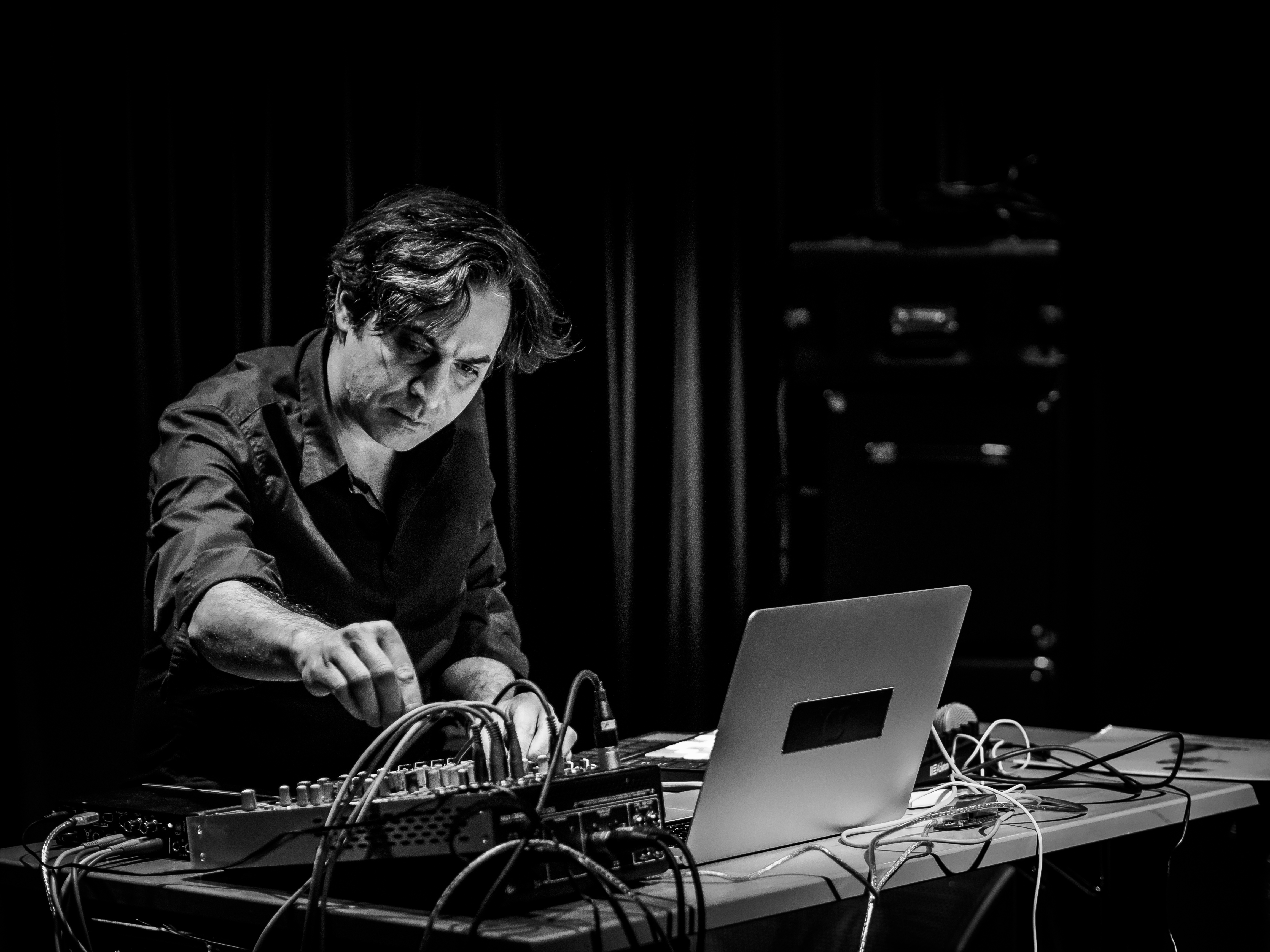
Yannis Kyriakides, photo by Peter Gannushkin
European Workshop for Contemporary Music jubilee
The Polish–German ensemble of the European Workshop for Contemporary Music will perform at Warsaw Autumn for the 20th time. Before appearing on the concert stage, young Polish performers, linked to the Fryderyk Chopin University of Music as in our three previous editions, and to various German music centres, will participate in workshops run by soloists of the Musikfabrik ensemble and headed by Rüdiger Bohn, director and teacher, who has been coaching musicians and leading concerts since the inception of the EWCM. Works selected for this year’s concert will include a new composition by Tadeusz Wielecki, one of the instigators of the EWCM, written especially for this anniversary. The Workshop is the manifestation of consistent positivistic effort, resulting not only in great concerts and the establishment of active ensembles that saw the light during these meetings—such as Kwartludium and Spółdzielnia Muzyczna—but also of building relationships between people of culture in Poland and Germany. They will be harder to fool over various political demagogies or populisms, erected on artificially ignited divisions. The EWCM ensemble is a practical embodiment of European union.
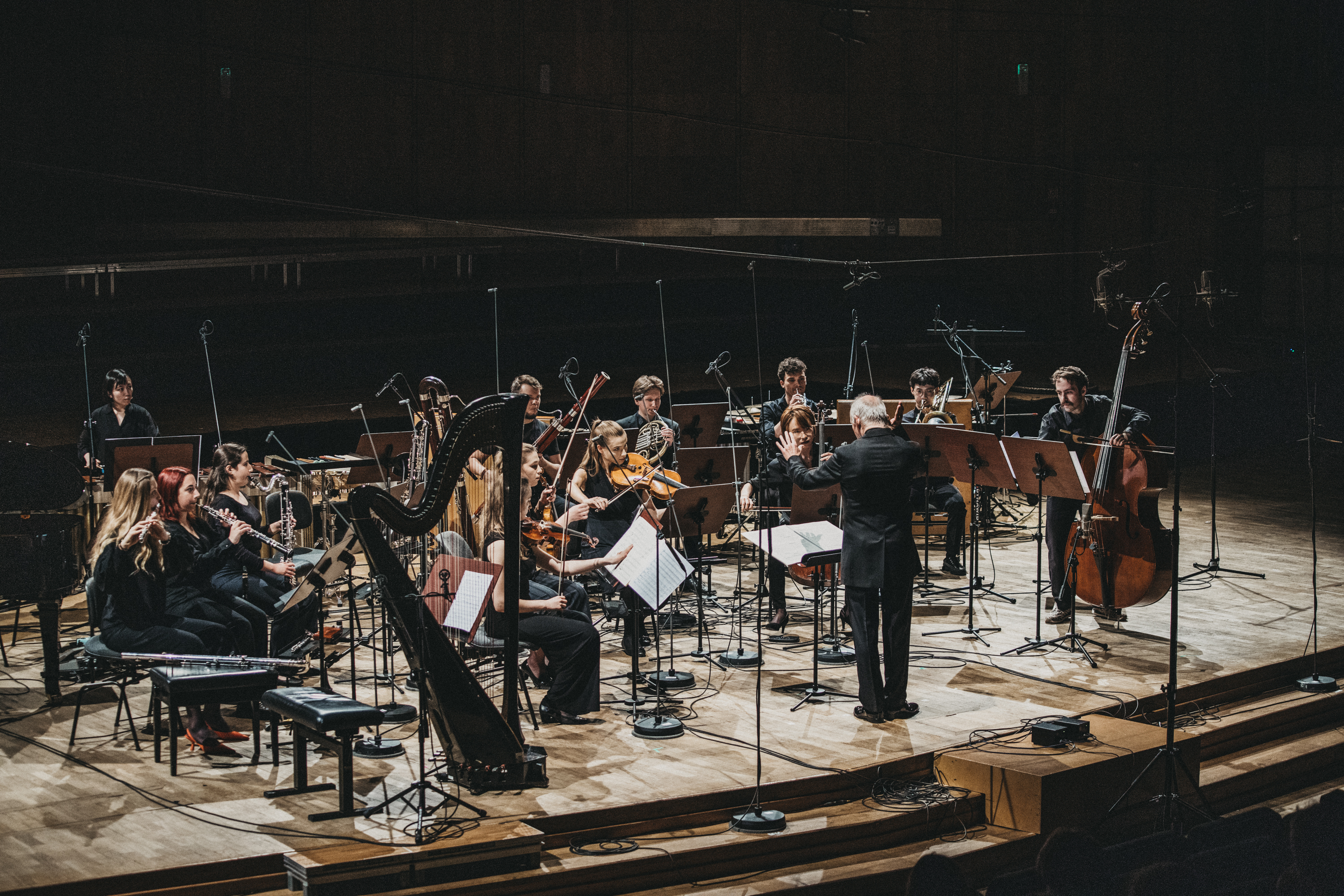
Warsaw Autumn 2022, European Workshop for Contemporary Music, photo by Grzegorz Mart - Współczesna Sztuka Dokumentacji
Iran
Interest is growing in contemporary Iranian music, its fascinating musical textures and narratives, created often by women composers who are also ethnomusicologists. This year’s Warsaw Autumn will feature the cycle Tuned to the night (Shábkūk) for string orchestra by Fozié Majd, which is returning to concert life also thanks to the extraordinary effors of our Festival. We shall also hear the music of Idin Samimi Mofakham, whole the opening event of Warsaw Autumn will feature conductress Yalda Zamani leading the Sinfonia Varsovia.
Nadar Academy
This joint initiative by the Nadar Ensemble and three European festivals: Warsaw Autumn, Gaudeamus Music Week, and Huddersfield Contemporary Music Festival, commissions works with young composers in different countries who cooperate with Nadar and are featured in concerts at the ensemble’s seat in Sint-Niklaas, Belgium and the said festivals.
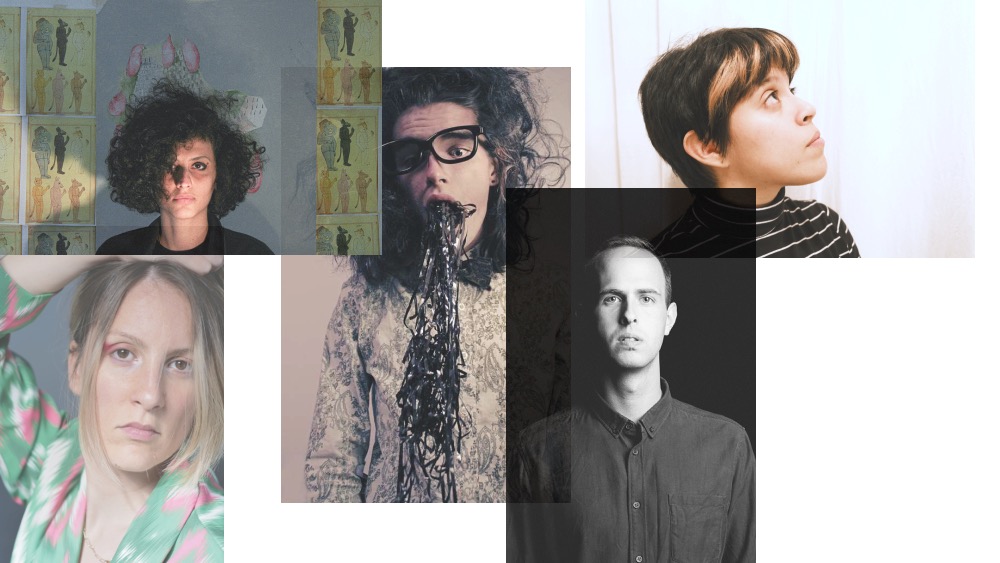
Golnaz Shariatzadeh, Adriana Minu, Craig Scott, Piotr Peszat, Christine Cornwell
Festival commissions
Warsaw Autumn has commissioned works with Bernhard Lang (jointly with the Adam Mickiewicz Institute), Paweł Malinowski, Tadeusz Wielecki, Rafał Zapała, Sławomir Wojciechowski, Yannis Kyriakides (jointly with Stichting Musai), Piotr Peszat, Chaya Czernowin (jointly with the Music Biennale Zagreb, Croatian Composers’ Union, and the Wien Modern festival)), Alex Mincek, Karol Nepelski, Sky Macklay, Martin A. Hirsti-Kvam, Wojciech Błażejczyk (jointly with the Warsaw Philharmonic), Aleksandra Słyż (Warsaw Autumn Hits the Club), and Agata Zubel (Little Warsaw Autumn). Installations designed especially for the Festival will also be shown, and unique improvisations and performances shall be presented.
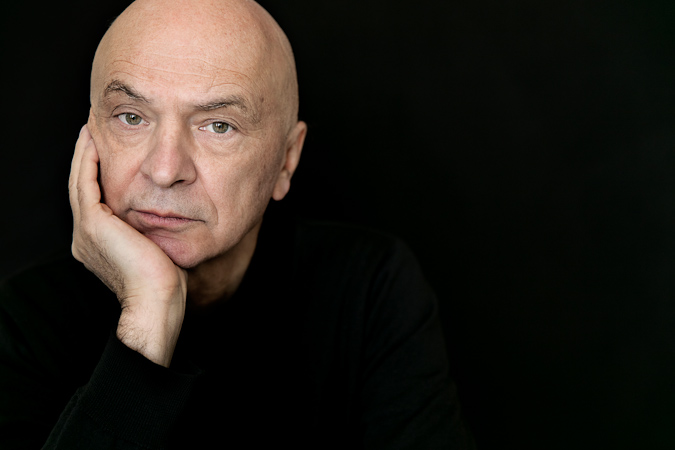
Bernhard Lang, photo by Harald Hoffmann
Little Warsaw Autumn
Little Warsaw Autumn, aimed at our youngest audiences and entire families, will include a dozen events including three world premieres under the joint title Resounding Worlds. Our youngest listeners shall travel to sound realms through “resounding things” big and small. These worlds will include behind the mirror, sound and vision animation and improvisation, and secret garden. Our guides will include artists of various disciplines: Agata Zubel, Wojciech Błażejczyk, Aleksandra Wasilkowska, Dagna Sadkowska, Sean Palmer, Justyna Sobczyk, and many others. The eponymous Resounding Worlds will assume the shape of a hologram children’s opera, musical show, and improvisation concert, as well as film animations.
Warsaw Autumn Hits the Club
Warsaw Autumn Hits the Club gets closer. Yet again, we will be hosted by the Pardon, To Tu club, where we shall introduce sound phenomena from various new music environments to each other, though they are often surprisingly similar. Two evenings will be filled with solo and ensemble improvisations, sound travels between notated, inspired, and freely improvised forms. Objectual playing? Yes, here.
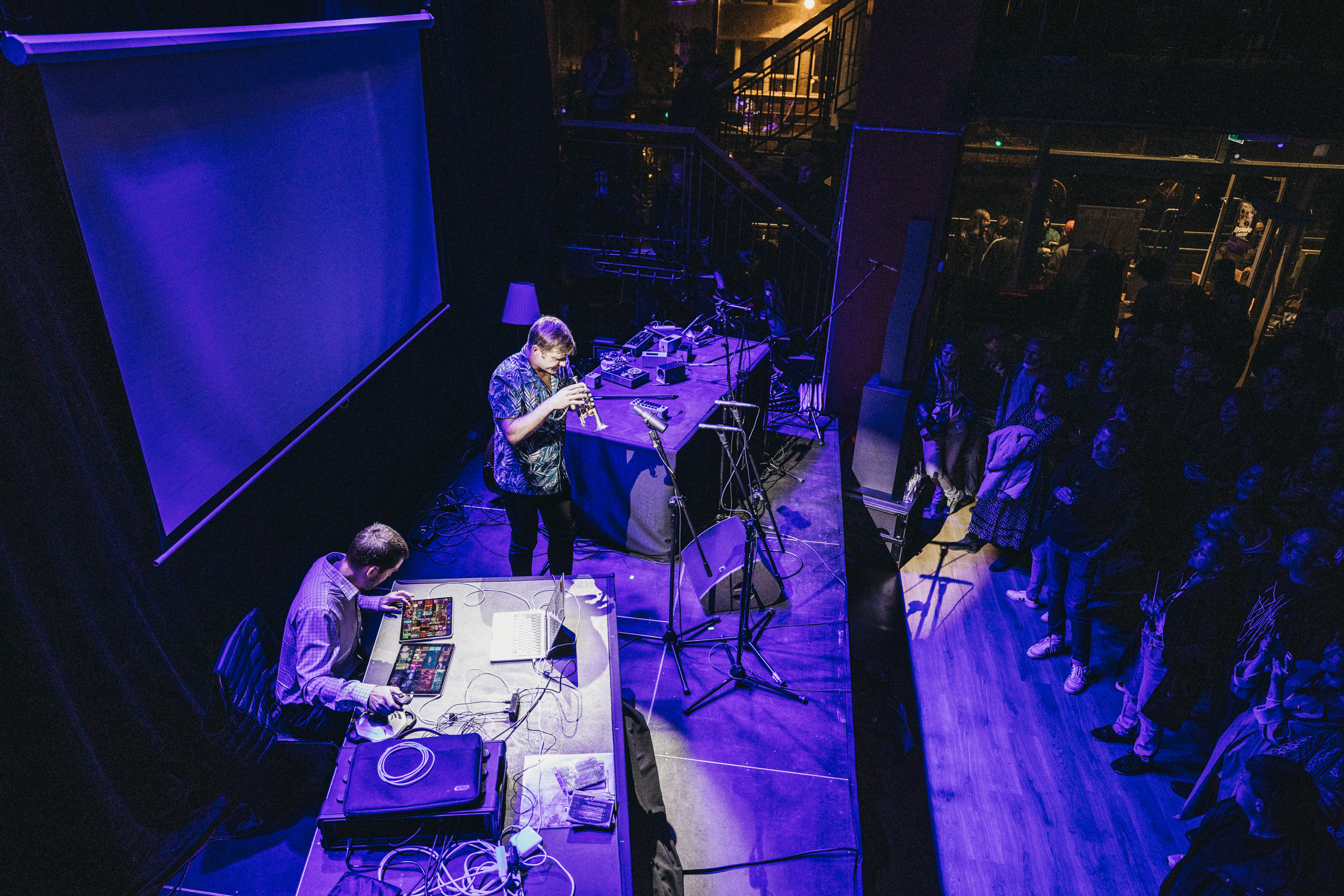
Warsaw Autumn Hits the Club 2022, Sam Pluta / Peter Evans Duo, photo by Grzegorz Mart - Współczesna Sztuka Dokumentacji
Meetings, workshops, and internet radio
The Austrian Cultural Forum shall host meetings with artists participating in the Festival and compositional workshops for young composers. Each day of Warsaw Autumn and a day after the Festival’s conclusion, the web-based Autumn Radio will present features about the programme and new music in general, hosted by Monika Pasiecznik and Tomasz Biernacki. Get to know Warsaw Autumn from the inside out!
Orchestras, ensembles, and soloists
will include: the Warsaw Philharmonic Orchestra and Choir directed by Wilson Hermanto, Sinfonia Varsovia directed by Yalda Zamani, AUKSO – City of Tychy Chamber Orchestra directed by Marek Moś, Klangforum Wien directed by Lorenz C. Aichner, EWCM directed by Rüdiger Bohn, New Music Orchestra directed by Szymon Bywalec, Nadar Ensemble, Riot Ensemble directed by Aaron Holloway-Nahum, Hashtag Ensemble directed by Lilianna Krych, Radical Polish Ansembl, Spółdzielnia Muzyczna, Nowy Theatre Youth Orchestra directed by Dagna Sadkowska and Sean Palmer, NeoQuartet, a group of performers of the Simon Løffler installation, soloists of the Katowice Philharmonic, Sarah Maria Sun, Evan Hulbert, Agata Zubel, Valentina Magaletti, Tomoko Mukaiyama, Aleksandra Słyż, Hans van Koolwijk, Kuba Krzewiński, Arkadiusz Bialic, Paweł Romańczuk, Steve Beresford, Madhira De Saran, Gareth Davis, John Edwards, Ryszard Lubieniecki, Maja Miro, Kaja Draksler, Szymon Gąsiorek aka Pimpon, Miłosz Pękala, Grzegorz Tarwid, Dominik Strycharski, and others.
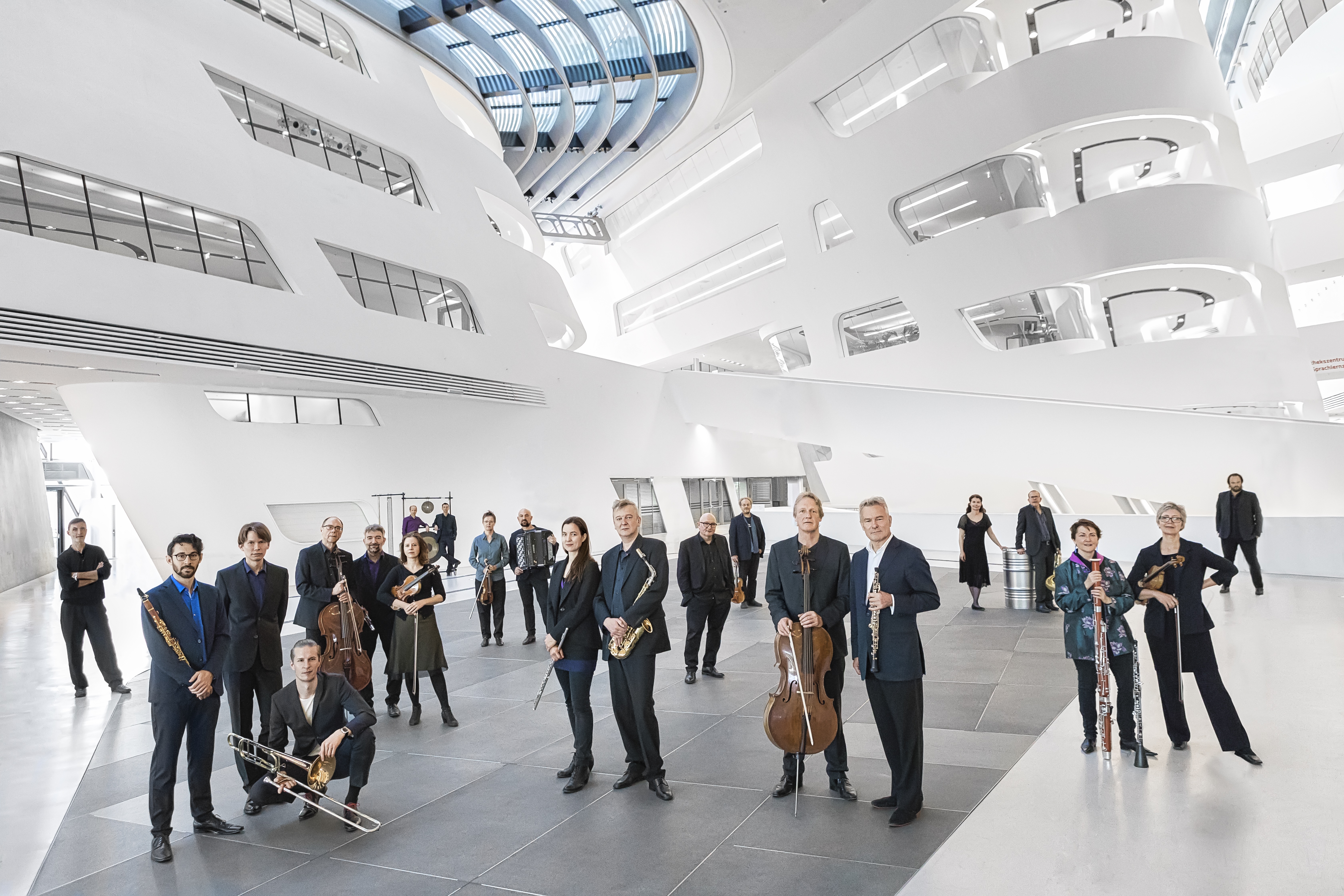
Klangforum Wien, photo by Tina Herzl
Authors of compositions, improvisation, and installations
Malin Bång, Katherine Balch, Maja Bosnić, Christine Cornwell, Chaya Czernowin, Monika Dalach, Kaja Draksler, Bára Gísladóttir, Nina Fukuoka, Clara Iannotta, Martyna Kosecka, Sky Macklay, Valentina Magaletti, Fozié Majd, Adriana Minu, Maja Miro, Naomi Pinnock, Teoniki Rożynek, Madhira De Saram, Golnaz Shariatzadeh, Aleksandra Słyż, Rebecca Saunders, Jagoda Szmytka, Marta Śniady, Agata Zubel, Steve Beresford, Wojciech Błażejczyk, Erik Brandal, Marko Ciciliani, Krzysztof Cybulski, John Edwards, Szymon Gąsiorek aka Pimpon, Henryk Mikołaj Górecki, Paweł Hendrich, Martin A. Hirsti-Kvam, Toshio Hosokawa, Neo Hülcker, Kuba Krzewiński, Yannis Kyriakides, Iannis Xenakis, Bernhard Lang, David Lang, Simon Løffler, Ryszard Lubieniecki, Hans van Koolwijk, Helmut Lachenmann, Paweł Malinowski, Fabio Machiavelli, Alex Mincek, Idin Samimi Mofakham, Karol Nepelski, Piotr Peszat, Paweł Romańczuk, Marcin Rupociński, Marcin Stańczyk, Dominik Strycharski, David Lang, Grzegorz Tarwid, Alex Vaughan, Tadeusz Wielecki, Krzysztof Wołek, Sławomir Wojciechowski, Rafał Zapała; as well as students and teachers of the Academy of Fine Arts and the Fryderyk Chopin University of Music: Alicja Staszewska, Dominika Reszka, Jakub Wróblewski, Domi Depowski, Maciej Miecznikowski, Agnieszka Suchocka, Daniela Rippel-Markiewicz, Zuzanna Wawro, Filip Roszkowski, Adam Czerski, Barbara Zach, Martyna Kacprowicz, Kajetan Dziak, Maryla Kłosowska, Szymon Nalepa, and Jan Olejniczak.
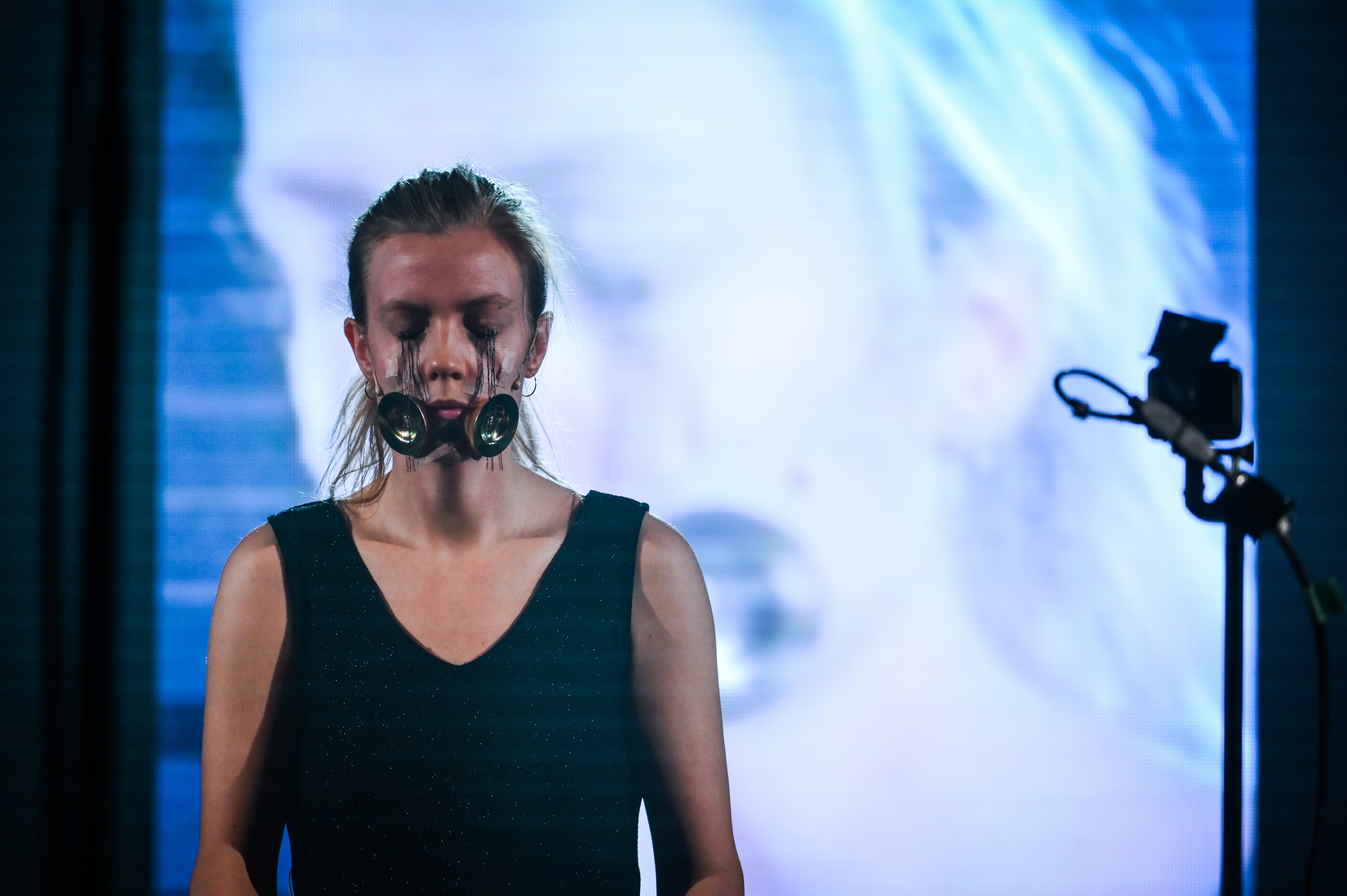
Ane Marthe Sørlien Holen performinh Animalia III by Simon Løffler, fot. Alexander Banck-Petersen
The Festival in numbers
This year’s Warsaw Autumn will feature works by 32 female and 49 male composers, including 42 linked to Poland. Twelve venues in Warsaw shall host 47 events from our main programme, Warsaw Autumn Hits the Club, and Little Warsaw Autumn. 22 works will be presented for the first time. We shall hear five orchestras, one choir, eleven ensembles, and 23 soloists. Sixteen fringe events will also take place.
Festival liaisons with Ad Libitum and PWM Edition
The guest festival at this year’s Warsaw Autumn is Ad Libitum. On 19 September, a concert titled Ad Libitum at Warsaw Autumn will take place, followed on 20 September by a meeting with its performers and creators of the festival. On 22 September, a special concert of the PWM Edition will also take place, featuring the New Music Orchestra.
Warsaw Autumn strives to emphasise the importance of cooperation between festivals and institutions, mutual inspirations and continuations, as well as solidarity for the difficulties faced by the entire new music community. We wish to thank the following entities for the joint initiatives and inspirations: Ad Libitum, PWM Edition, AvantArt, Musica Polonica Nova, Sacrum Profanum, WRO, Music Biennale Zagreb, Wien Modern, Festival of Premieres, Gaudeamus Music Week, Huddersfield Festival of Contemporary Music, Podium Gegenwart Deutscher Musikrat, Adam Mickiewicz Institute, Warsaw Philharmonic, Sinfonia Varsovia, Katowice Philharmonic, Stichting Musai, and the festivals of the Ulysses network. We also send our thanks to the institutions and individuals who have engaged in Warsaw Autumn’s fringe events, through which our Festival can reach a wider audience. All together, we create a nationally and internationally important cultural movement.
Programme teams
Apart from our repertoire committee, Paweł Hendrich—who combined the membership in the repertoire committee with curating our opening event—and the curators of Warsaw Autumn Hits the Club and Little Warsaw Autumn, the programme of this year’s various festival events is the fruit of the work of Ania Karpowicz, Kuba Krzewiński, Antoni Michnik, Michał Mendyk, Janusz Jabłoński, Tomasz Gregorczyk, Wojciech Błażejczyk, Przemysław Danowski, Adam Dudek, Prot Jarnuszkiewicz, Łukasz Kosela, and Jakub Wróblewski.
Debates
Warsaw Autumn is a cultural debate space also thanks to its fora of intellectual exchange. During this year’s edition, we shall feature the founding meeting of a platform for contemporary music ensembles and organisations, instigated by Ania Karpowicz and the Hashtag Ensemble. The surge in new initiatives and their growing influence on new music is largely happening in the non-governmental sector. The latter’s artistic power was already shown last year at the Chamber Marathon. The NGO’s cultural productivity is accompanied by instability and a precarious financial condition, not least because of inflation. For this area of culture, it is essential to benefit from the constitutional “auxiliary role of the state” and aiming for a balance between three sectors of culture: the state, local governments, and NGOs.
We shall also feature a symposium of European festivals syndicated in the Sounds Now organisation, titled Curatorial Voices of the Other, coordinated by Monika Żyła. Another space for cultural debate shall be offered by the panel Composers, Festivals, and Critics: A common or divided space, coordinated by Ania Karpowicz and Kuba Krzewiński. All three are Warsaw Autumn fringe events and shall take place in the HashterLab Contemporary Music Space.
Partners and allies
We thank our sponsors, coorganisers of the Festival, partners and allies, including the Capital City of Warsaw, Ministry of Culture and National Heritage, Warsaw Philharmonic, Polish Radio Programme 2, Society of Authors ZAiKS, Fryderyk Chopin University of Music in Warsaw, Academy of Fine Arts, Adam Mickiewicz Institute, PWM Edition, and Żoliborz House of Culture.
Time to begin the 66th International Festival of Contemporary Music. Let me wish you a time of intense experiences, unfaltering interest in musical works, ideas, and people. May the “resounding things” resonate within us during the nine days of the Festival.
Jerzy Kornowicz
Director of the Festival
The programme is subject to alteration